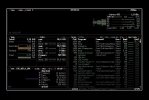kalebludlow
New Member
I'd love to hear from anyone that's gotten OBS working in any meaningful capacity on their raspi5. I've done some fiddling with trying to install newer drivers or something but haven't gotten anywhere meaningful. I've tried building it myself but get caught when I can't install the libvpl-dev dependency. Would appreciate any advice
